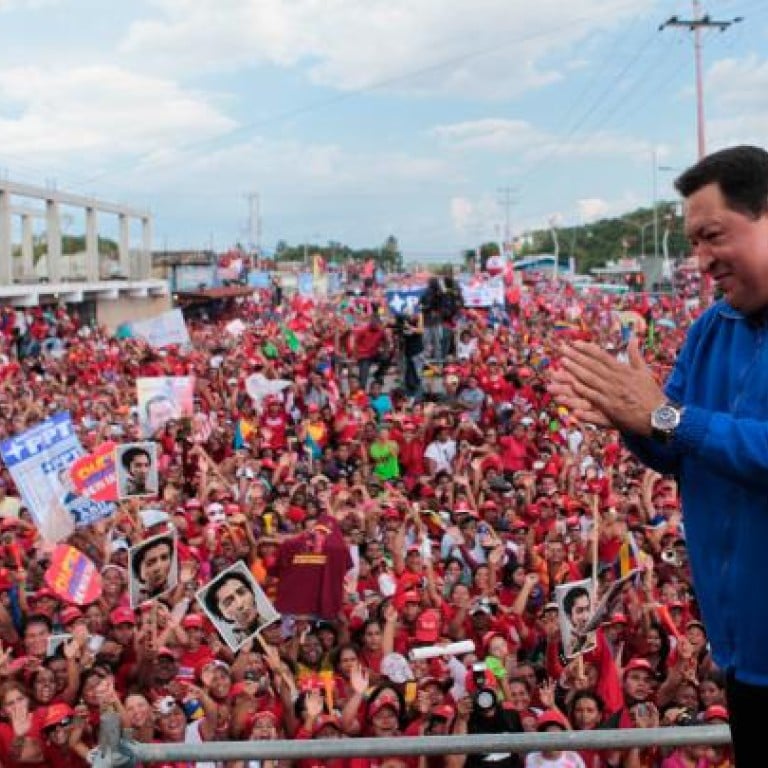
Chavez calls for pre-dawn turnout at Venezuela vote
Venezuelan President Hugo Chavez urged his supporters to vote early at Sunday’s election, saying the key to him winning another six-year term was organisation and logistics.
Venezuelan President Hugo Chavez urged his supporters to vote early at Sunday’s election, saying the key to him winning another six-year term as leader of South America’s biggest oil exporter was organisation and logistics.
Chavez, 58, is in a close race with 40-year-old state governor Henrique Capriles, and both camps are now focused on their final rallies and getting their supporters to the polls.
The socialist president, a former army officer, called on his followers to rouse their neighbours with trumpets and bugles in a military-style, pre-dawn wake-up call that has been used in previous elections.
“It should be at 3am Get some nice coffee, some good chocolate, an early breakfast. We have to work very hard in the logistics, the deployment. Water, food for the troops, transport to the polls, to the voting centres,” Chavez told thousands of red-shirted “Chavistas” in the central city of Yaritagua.
“We have to take good care of all these aspects, the strategy the tactics ... What’s at stake is too important: the next 100 years of the fatherland.”
Among the half dozen or so major local pollsters, most put Chavez ahead, but Capriles has been creeping up thanks to an energetic campaign. Two surveys gave him a slight edge.
Chavez has stepped up his campaign in recent days, although he is still recovering from three cancer operations and various treatments since June last year.
If he wins, questions will remain about his health, and the lack of a clear successor from his ruling Socialist Party.
Capriles, who would be Venezuela’s youngest leader if he wins, is expected to end heavy intervention by the president in the economy.
Capriles has also said he would steer foreign relations away from Chavez’s alliances with nations such as Iran and Belarus, which the West views with suspicion over their human rights records.
Many Venezuelans are concerned that a close result in the election would be contested by either side. That could lead to confrontation and violence in a country awash with millions of firearms.
Three opposition activists were shot dead at the weekend.
Chavez has repeatedly accused Capriles’ camp of plotting to unleash violence and “reject the peoples’ triumph” if they lose on Sunday, but says they would be defeated.
Opposition activists, meanwhile, say they are worried that the president may refuse to step down if he loses.
“Chavez will probably not have political room to reject the election results completely (if he loses narrowly), but his followers could mobilise and try to erode Capriles’ legitimacy.” Eurasia Group said in a research note.
“The government could also use claims of fraud to justify taking measures in the months before Capriles takes office on January 10 that would hinder Capriles’ ability to govern (though they would probably do this if his victory was large as well).”
The opposition leader told a rally he would complete public works that he says were commissioned by Chavez but then neglected. He has mocked Chavez’s pledge to crack down on inefficiency in the government as too little, too late.
Capriles contends that Venezuela’s 29 million people have been let down by a government that has squandered record oil revenue and focused on spreading Chavez’s socialist project around the world, while losing sight of voters’ daily problems such a crime and unemployment.
“The decision on October 7 is: do you want to stay where we are, or do you want a better future?” Capriles asked cheering supporters at a rally in the Andean mountain city of Merida. “In five days, you are going to decide what kind of life you want.”
